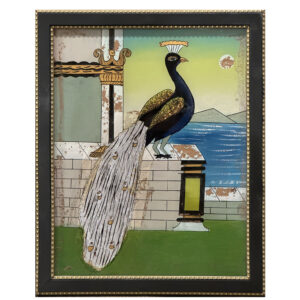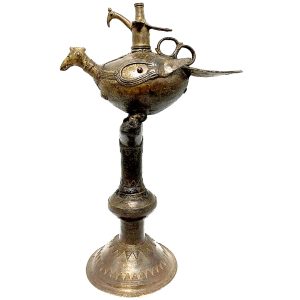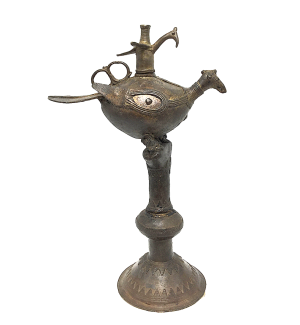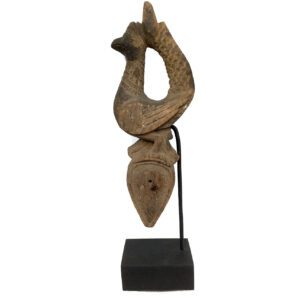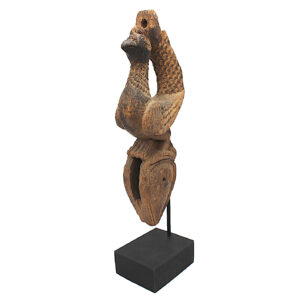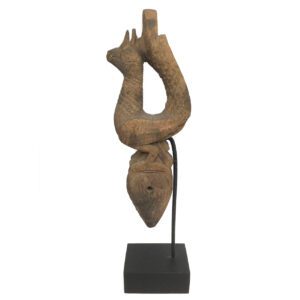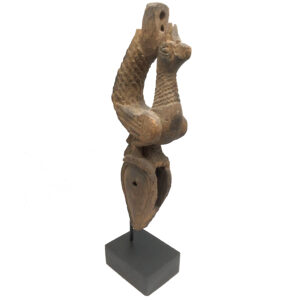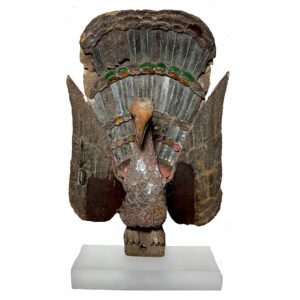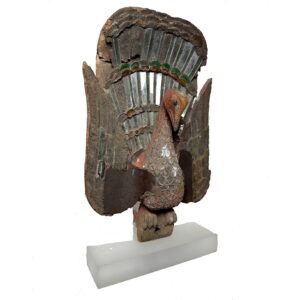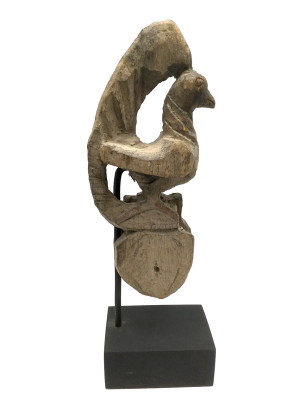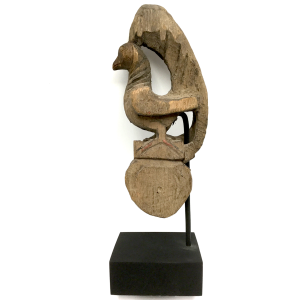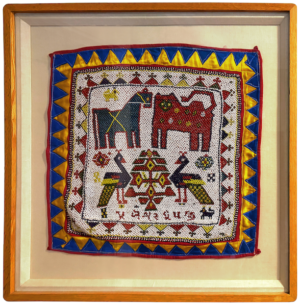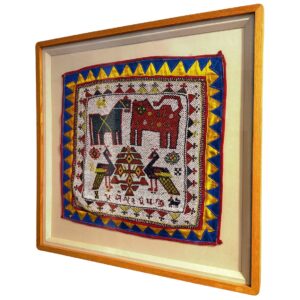-
Sale!

$395.00 Original price was: $395.00.$325.00Current price is: $325.00.
H: 16″ W: 13 ” D: 1″ | CALL 213-568-3030 OR EMAIL [email protected] FOR SHIPPING
Glass painting of a peacock, one of a pair of panels in an antique Indian cabinet with Krishna Playing his Flute (3982). This vibrant wall hanging is beautifully painted with reflective silver accents. We recommend they be kept as a pair.
-
Sale!


$365.00 Original price was: $365.00.$295.00Current price is: $295.00.
H: 13″ W: 8.5″ D: 4.75″ | CALL 213-568-3030 OR EMAIL [email protected] FOR SHIPPING.
Graceful peacock oil lamp for Hindu ritual home altar prayers signifying purity, virtuosity, goodness, good luck. Large peacock is reservoir for oil, smaller peacock the lamp’s lid. Peacocks symbolize love, joy, peace and harmony.
-
Sale!


$245.00 Original price was: $245.00.$185.00Current price is: $185.00.
H: 13” W: 3.75” D: 2.625” | FREE SHIPPING WITHIN CONTINENTAL U.S.
Burmese teak heddle pulley surmounted by a graceful peacock that symbolizes wholeness, combining colors and fleeting nature of all things. Based on old animistic beliefs, heddles are decorated with auspicious animals providing the weaver protection, assuring good quality weaving and pleasing the gods.
-
Sale!


$245.00 Original price was: $245.00.$175.00Current price is: $175.00.
H: 14″ W: 2.675” D: 3.5” | FREE SHIPPING WITHIN CONTINENTAL U.S.
This elegant heddle pulley carved from a single piece of Burmese teak is topped by a peacock, which in Buddhism represents the short-lived nature of all things. In Burmese animistic traditions, it auspicious animal images protect the weaver, assure quality weaving, and please the gods and spirits. Finely weathered from time and use.
-
Sale!


$725.00 Original price was: $725.00.$595.00Current price is: $595.00.
H: 16.5” W: 9.5” | 2.875” : | CALL 213-568-3030 OR EMAIL [email protected] FOR SHIPPING.
Carved Mandalay style peacocks with outspread feathers like this were placed over entrances to protect religious and government buildings. The peacock was emblem of last Burmese Dynasty symbolizing the monarchy descending from the sun.
-
Sale!


$265.00 Original price was: $265.00.$185.00Current price is: $185.00.
Ht: 10.625″ W: 3.375″ D: 2.5″|FREE SHIPPING WITHIN CONTINENTAL U.S. !
This elegant antique heddle-pulley carved from a single piece of Burmese teak is topped by a hamsa, a goose-like bird and a sacred Buddhist symbol of wisdom. Auspicious symbolic animal images are believed protect the weaver, assure quality weaving, and pleases the gods and spirits. It is wonderfully weathered from time and use with minor losses with a fine patina. Mounted on a black wood base, this heddle pulley pairs well with item number 11298A.
-
Sale!


$495.00 Original price was: $495.00.$395.00Current price is: $395.00.
H: 30″ W: 29.5″ D: 2.125″ | CALL 213-568-3030 OR EMAIL [email protected] FOR SHIPPING
Vintage beadwork tapestry with many auspicious Hindu symbols: Tree of Life, Monkey God Hanuman, a horse and pair of peacocks together symbolizing the cycle of life, spiritual growth, enlightenment, divine wisdom and beauty. Used in many Indian celebrations, they are also placed at home doorways and thresholds symbolizing warmth, positivity, and protection and invite blessings to the home.
End of content
End of content

